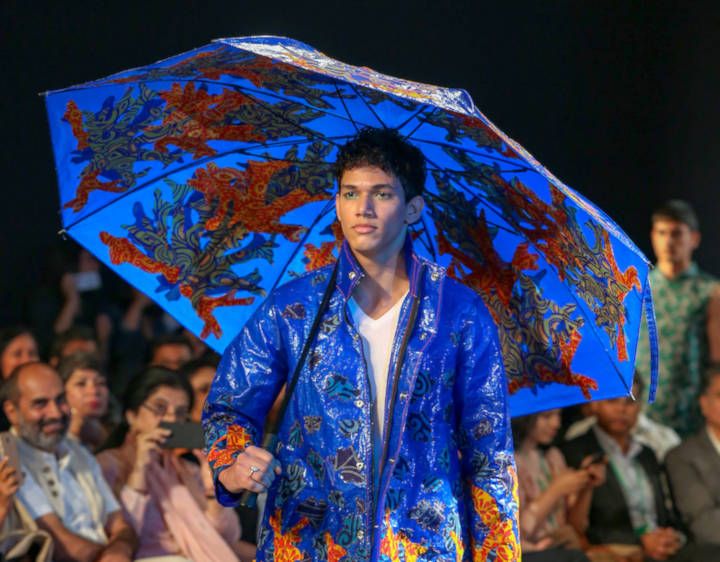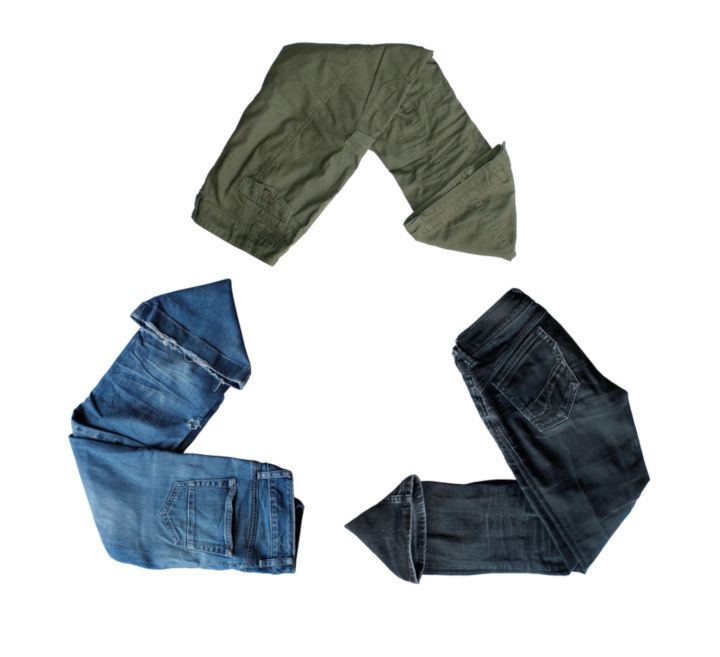
The integration of sustainability in the fashion industry is gaining steam. It’s a major challenge that many stakeholders of the industry are taking charge of to instigate change. The sector that’s known for its glitzy glam side is giving a thumbs up for a greener future too, and circular fashion is playing a big role in this. India, with its rich textile culture and craftsmanship, is also taking on this challenge head-on. Though sustainable fashion seems like an achievable benchmark, a circular economy in this sector seems like a farfetched dream. So, to steer the indigenous industry in this direction, R Elan’s ‘Fashion for Earth’ initiative launched the ‘Circular Design Challenge’ last year Lakmé Fashion Week in partnership with the United Nations in India.
What Is Circular Fashion?
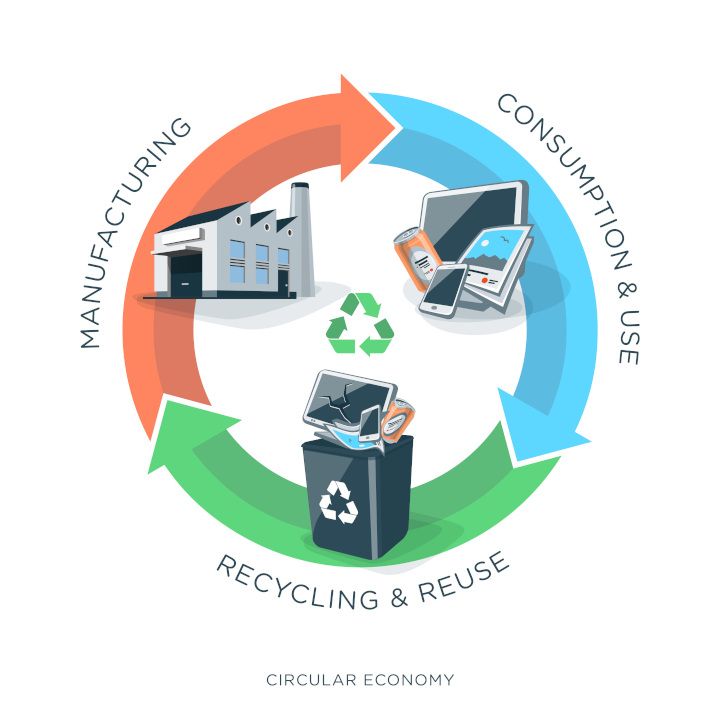
Wikipedia defines the circular economy as a regenerative system in which resource input and waste, emission, and energy leakage are minimised by slowing, closing, and narrowing energy and material loops; this can be achieved through long-lasting design, maintenance, repair, reuse, remanufacturing, refurbishing, recycling, and upcycling. When this model is used in the manufacturing process involved in the fashion and textile industry it’s called circular fashion. Now, this is a very tough loop to close and not that easily achievable, but future curators of fashion in India and beyond are diving deep into it and going green.
What Is The Circular Design Challenge?
It is India’s first ever award for sustainability and is a great platform for all fashion/accessory designers and entrepreneurs of India. It’s all about appreciating the efforts of environmentally conscious stakeholders who strive to achieve and complete the model of a circular design. It aims at inspiring innovation and a way of searching for solutions that reduce the environmental impact of the fashion and textile industry.
Circular Design Challenge Award 2019
After more than 900 registrations from over 30 cities across India, 8 designers were shortlisted for the final round. The scrutiny was intense as the criteria were detailed. According to the Circular Design Challenge guidelines, the designers were required to incorporate circular components across the textile value chain in their design through the application of circular-design principles and demonstrate a positive impact on the environment and on society. They were evaluated and scored on the usage of waste in their collection, fashion & aesthetic quotient, business viability/scalability, value chain and collaborations.
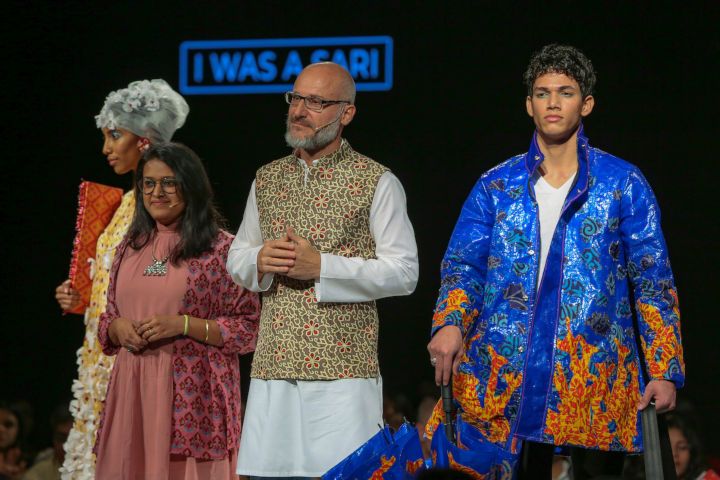
These 8 designers were shortlisted on the basis of their collection and how innovatively they used materials from diverse sources of waste including plastics. Pozruh by Aiman Sabri, Bareek by Aman Singh, IRO IRO by Bhaavya Goenka, I Was A Sari by Poornima Pande & Stefano Funari, Lifaffa by Kanika Ahuja, Saltpetre by Pooja Monga, Miesu by Seerat Virdi and Doodlage by Kriti Tula managed to fulfil these criteria.
Pozruh by Aiman Sabri
Circularity Elements
: Discarded fabric from t-shirt and other cutting waste, end of the line material from own garment manufacturing unit and local scrap dealers, reuse of discarded fabrics, wires, bags as textures and patterns using fabric patching and eco-friendly dyeing/printing and other techniques.
Bareek by Aman Singh
Circularity Elements
: Waste plastic collected from beaches of Goa that are processed as PET fabrics.
Doodlage by Kriti Tula
Circularity Elements
: Usage of discarded lyocell fabric, recycled cotton and wool, patchwork and panelling of waste fabrics and hand embroidery to fix stains. She also uses zero-waste production techniques at the in-house unit and operates and ethical production unit that works towards empowering women.
Miesu by Seerat Virdi
Circularity Elements
: Usage of discarded cotton and organic silks sourced from local boutiques and factories. She also uses recycled polyester fabric and discarded zippers and buttons.
Saltpetre by Pooja Monga
Circularity Elements
: Uses Green Gold fabric by R Elan that is made by recycling PET bottles, Azo-free dyes and buttons made of coconut shells.
Lifaffa by Kanika Ahuja
Circularity Elements
: Usage of hemp and PET fabric, handmade recycled plastic made from recycled polythene bags and discarded industrial fabric. Waste threads are recycled and woven into textiles, recycled HRP is made into embroidered clutches and fabric is dyed using plant dyes.
I Was A Sari by Poornima Pande & Stefano Funari
Circularity Elements
: Fabrics are constructed by upcycling pre-loved sarees. The idea behind the collection is to use the waste from one product as surface ornamentation of another.
IRO IRO by Bhaavya Goenka
Circularity Elements
: Uses wastage offcuts of cotton, linen and denim. The brand also uses a native fibre called Aakh that is grown without water in Rajasthan and uses natural dyes such as Neel and Kashish from artisans in Bagru.
The Winner
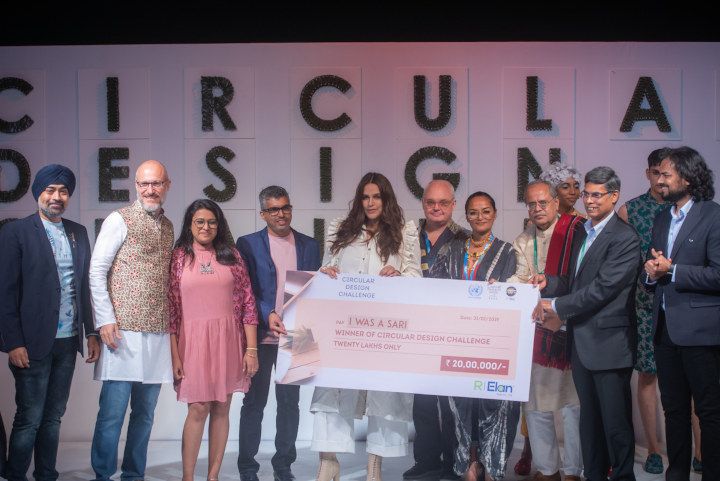
On the Sustainable Fashion Day at Lakmé Fashion Week Summer Resort 2019, these finalists were judged by eminent figures of the industry—Mickey Boardman, Bandana Tewari, Rahul Mishra, Harsha Vardhan, Atul Bagai and Neha Dhupia. The winner of the Circular Design Challenge Award 2019 was I Was A Sari by Poornima Pande & Stefano Funari. They received a cash prize of ₹20 lakhs and won an opportunity to present their full collection at the next season of Lakmé Fashion Week.
With its first edition itself, Circular Design Challenge has established itself as a platform for encouraging a circular fashion model and inspiring innovation through the process. It also preps the new generation of designers and entrepreneurs to look into a greener and wasteless future. All the participants, the circularity elements they used and the glimpse of their collections that they presented have definitely instilled hope for a better, environment-friendly and ethical fashion industry in India.
Follow @missmalinifashion and @missmalinibeauty on Instagram for more updates.

